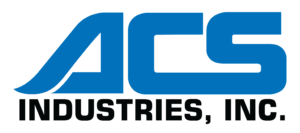ACS Commitment: ACS’s largest global production plant, located in Monterrey Mexico, has been running entirely on renewable energy since January 2020. Energy used in this facility is generated by EnerAB-owned wind farms in Mexico, including a 310 MW wind farm in Mesa la Paz. EnerAB currently operates wind farms with a total output of 945 MW. ACS’s energy sourcing plan saves emissions of 25,250 tons of CO2 per year, the equivalent of planting 6,312 hectares of trees annually. This contract is tailored to adhere the framework laid out in Annex A of the US-Mexico-Canada Trade Agreement.
ACS is committed to continually improving the sustainability of each of our departments and business units, and we hold our suppliers to the same lofty standards. We believe that action needs to be taken at every step of the supply chain in order to secure a brighter future for the planet and we are prepared to make the concessions needed to ensure the realization of this future.
Reach out today to find out how choosing ACS as a supplier can help your organization ensure it’s supply chain continues to satisfy even the most ambitious sustainability targets, requirements, and regulations.


